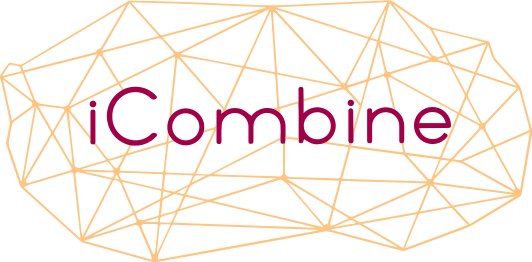Diesen Artikel findest du hier auf Deutsch.

New Work Berlin Meetup
In the middle of January, we invited our growing community to the first New Work Meetup in 2019. Out of more than 25 elements that shape the future of work, this time we discussed appreciation in the workplace. Together with participants from startups to corporates, we interactively developed ideas on how to positively influence corporate cultures by allowing more gratitude between colleagues and leaders.
Why organizations benefit from more appreciation
Many organizations struggle with high sick leave, burnouts and frustrated employees that mentally already quit their jobs. Low job satisfaction goes hand in hand with low productivity. According to a Gallup study, almost 70% of all U.S. workers are disengaged, causing about $483 billion to $605 billion each year in lost productivity. 80% of the people that are dissatisfied say that bad leadership and missing appreciation are the main reasons for their disengagement.
Therefore, appreciative corporate cultures are increasingly becoming a success factor, especially when companies aim to attract and retain the best talents on the market. Companies with engaged employees perform over 200% better. Engagement creates more innovation, generates 20% more income and decreases the likeliness of fluctuation by almost 90%.
Why individuals ask for more appreciation
Our fast-moving, connected world is characterized by constant change. This leads to uncertainty for the individual who is affected by it. Appreciation not only creates a better basic feeling, but it also offers security. For an appreciated person, the world looks like this:
“I am seen. With what I do, I am on the right path and make a valuable contribution to my fellow human beings, my organization and the world.”
The participants of our meetup agreed that gratitude is the prerequisite for good and successful leadership and cooperation. Valuing people, diversity, performance and contribution are the cornerstones for a healthy working environment. Appreciation is the key to more joy, more motivation, better co-existence, more satisfaction, more productivity and better work results. The benefits of gratitude for your personal and professional life are manifold.
What you can do to strengthen appreciation in your working environment

Participants discuss their ideas on how to set up an appreciation initiative
Everybody is able to show gratitude at work, no matter which position they are in. But clearly, an appreciative organizational culture needs support from all stakeholders within the organization. Once the sense of urgency is installed, we suggest inviting people from all areas of the organizations in order to outline the topic, discuss possible steps and manage expectations.
In our meetup session for appreciation, we actually tested this approach and it worked very well. We divided into groups of five people. Each group had 15 minutes time to discuss and write down answers to the following questions:
- What do you understand under the term appreciation? (Definition)
- Wich existing examples of appreciation in the workplace do you know? (Best practices)
- Imagine you and your team can set up an initiative for more appreciation. What do you want to achieve, so you can say: I couldn’t have spent my time any better than setting this initiative up with my team! (Outcomes)
- What could be the first steps to start this initiative and realize your goals? (Next steps)
This exercise can help you, to gain actionable knowledge in a collaborative exercise inside your organization. In our case, after going through these questions, all groups gathered again to share their most valuable action items for setting up an appreciative culture in their working environments. Based on this feedback, we compiled the following list of six actions that will boost appreciation in your workplace.
1. Take your time, ask and listen
No matter if you are a supervisor, a co-worker or a freelancer. We all know those moments when we need somebody to talk to, a person we can share positive and negative experience with. Having somebody like this helps us to release tension, reflect actions and think forward. You can show that you care about your colleagues by devoting your time, your ears, your eyes and your brain. Next time you ask somebody how are you, take it as a start for a real conversation. When you have the feeling that a colleague struggles with something, carefully offer yourself as a sparring partner.
2. Allow more Humanity
Different factors in our private and professional life have a strong impact on emotions, appearance, behavior and performance. Recognizing and respecting your colleagues’ state of mind will help you to build strong relationships. In case a colleague goes through hard times due to a setback, be gracious and offer your support. Let a parent go home earlier in case the kindergarten closes to soon. Openly talk about mistakes and the learnings you had.
3. Give Feedback
Develop a habit for acknowledgment within your organization. This includes regular routines: set up daily stand-ups, as well as monthly and quarterly feedback meetings instead of only annual evaluations to give more room for ongoing communication. Encourage your colleagues to be honest about things that are positive versus things that can be improved. As a leader or co-worker, always outline that mistakes are a chance to become better. Also show appreciation each time you give feedback, like: Thanks for being such a great back-up in this situation. With your help, we achieved… Train yourself and others in nonviolent communication.
4. Promote formal and informal Get-Togethers
Strengthen the network building in your organization. Get-togethers on a regular basis allow the exchange of informal feedback between colleagues. They also help to promote the exchange between colleagues of different domains. Joint learning programs, e.g. through mentorship, will strengthen bonds and support the development of skills at the same time.
5. Recognize Potential
Continuously improve your understanding of how your colleagues work, what kind of challenges they face every day and which capabilities they currently have. With the help of information from feedback talks, informal meetings and data (such as skill gap analysis provided by iCombine), you will recognize how different talent can be developed inside of your organization.
6. Offer different kinds of Incentives
A decent salary is indeed a form of appreciation. But non-financial awards can be very strong motivators. Celebrating a success by inviting employees to a special event, offering more flexibility in terms of working hours or location, honoring very supportive colleagues or supporting social initiatives started by employees are only some examples.
Start to show appreciation Today
It is not difficult for you as a leader or co-worker to honor the people around you. You can start today by telling somebody how grateful you are. Be honest, make it a habit. You will see that others will eventually return the favor. Share this article and inspire others to talk about the advantages explained above. Find like-minded people from different levels in your organization and discuss the same questions as we did in our meetup. You can make a significant change!
Feel free to comment on this post so that others can read about your ideas and experiences. A warm thank you goes out to Antje for introducing the topic and leading the workshop, as well as Vimcar for hosting us in their space with drinks and pretzels. Cheers to our lovely co-organizers Friederike and Thomas, let’s continue to spread the word!
Picture by Freepik.

